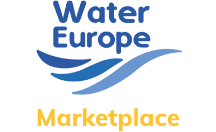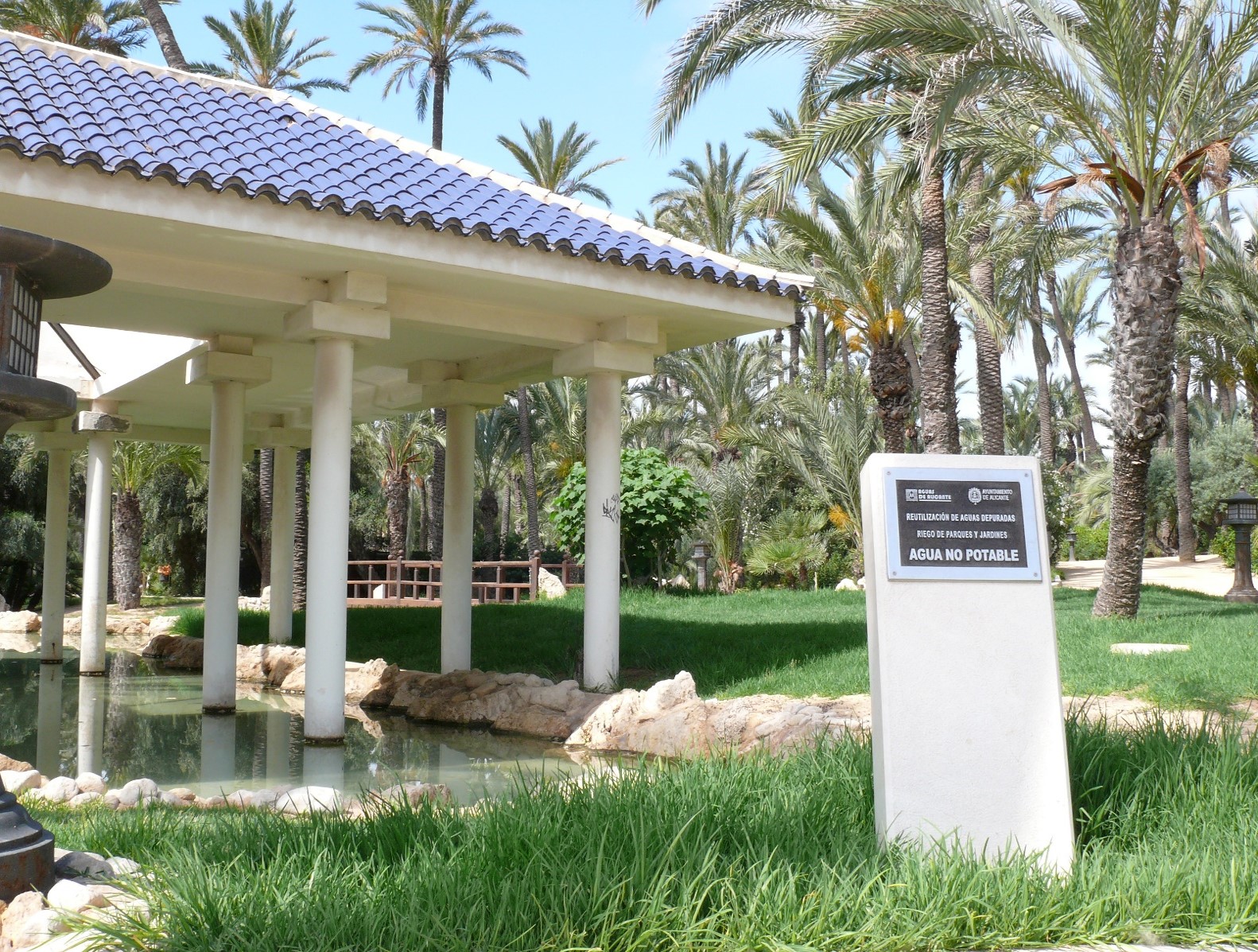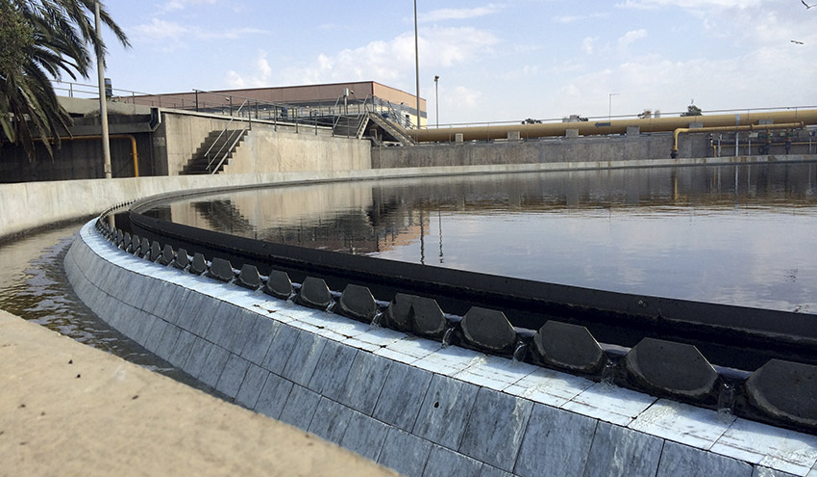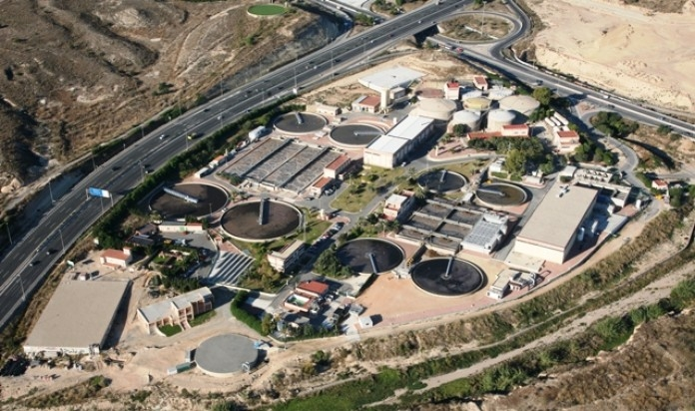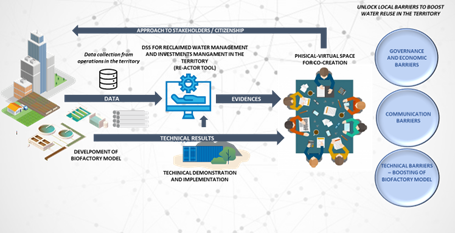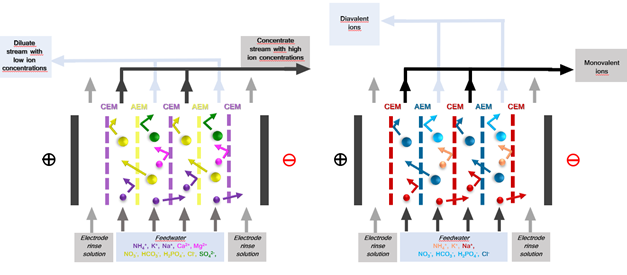Description
The Alicante Living Lab aims to exploit 100% of the reuse potential in the region and to promote circular economy strategies both at the Rincón de León WWTP and in the region. In the water-energy vector, solutions for the co-digestion of oils and greases or the installation of microturbines for energy recovery from wastewater treatment plant effluents are evaluated. In the water-resources vector, ion exchange membrane technologies are evaluated to maximise the recovery of reclaimed water, as well as the recovery of raw materials from current reverse osmosis rejects. On the other hand, evaporation and crystallisation solutions are evaluated for the recovery and valorisation of nutrients in the sewage sludge line.
Within the framework of the Living Lab on reuse, a digital decision-making support tool has been developed for the evaluation of new investments and actions related to water reuse and circular economy solutions within the urban water cycle. The scope of application is at regional level.
Applied technologies
Facts of the applied technologies
Eutrophication, Carbon footprint, CAPEX, OPEX.
Key performance indicators
Performance of technologies evaluated in WP2 (at pilot level) does not depend on the RE-ACTOR tool but the other way around. RE-ACTOR database is being fed with performance data of technologies in WP2.
Synergistic benefits
The tool allowed users to assess environmental and economic impacts of upgrading scenarios with different technologies and prioritize them.
Requirements and conditions
- Internet and minimum requirements to access to the web app.
- Reliable and updated data on economic and environmental parameters for the WP2 technologies. Especially economic data on fluctuant costs needs to be updated on a regular basis if accurate results are pursued.
- Basic information to define baseline.
Key lessons
The application of circular economy solutions in WWTPs usually implies including supplementary technologies. For this reason, CAPEX is frequently a challenge, despite the advantages of recovering resources or valorizing wastes. The cost of doing nothing is often apparently lower.
RE-ACTOR allows to assess the application of upgrades in a straightforward and fast manner. It needs to be highlighted that the results have a certain degree of uncertainty; as mentioned, this characteristic is intentionally assumed in order to avoid the model of “data-hungry” applications that need extensive analysis.
The tool supports pre-screening general assessment on different scenarios for a later deeper assessment.
Legislation and policy recommendations
- European regulation on minimum requirements for water reuse (EU 2020/741)
- Spanish Royal Decree 1620/2007 for water reuse.
Applied product
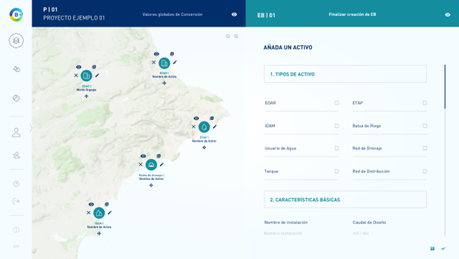
RE-ACTOR
DSS for the evaluation of new investments and actions related to water reuse and circular economy solutions within the …
